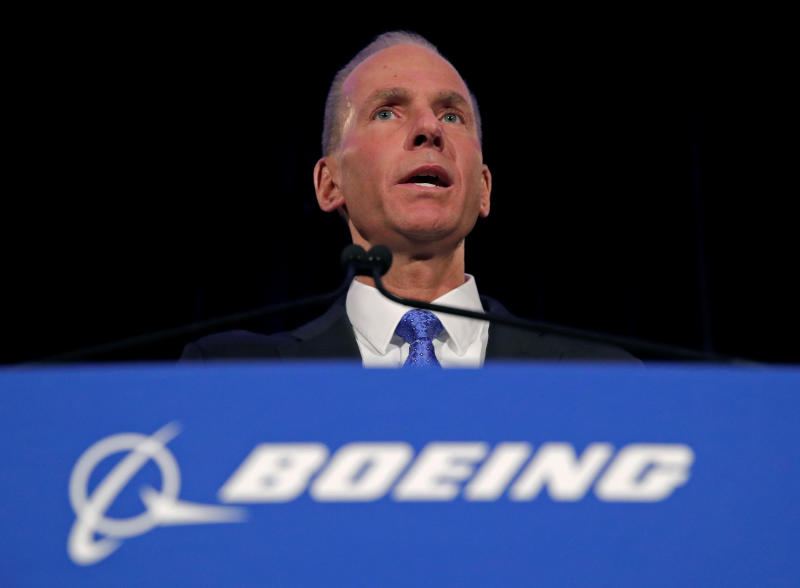'We know we made mistakes': Boeing CEO to face the Senate $BA

On Tuesday, the one-year anniversary of the crash of Lion Air Flight 610, the first of two fatal crashes of Boeing’s 737 Max, Boeing (BA) CEO Dennis Muilenburg is scheduled to testify before the Senate Commerce Committee, Science, and Transportation concerning the company’s design, development, and certification of the aircraft.
It’s one of two scheduled Congressional public hearings this week where Muilenburg will be in the in the hot seat. On Wednesday, members of the House of Representatives Transportation and Infrastructure Committee are scheduled to hold a hearing to question the CEO. Muilenburg previously turned down the House Committee’s earlier invitation to testify.
“We know we made mistakes and got some things wrong. We own that, and we are fixing them. We have developed improvements to the 737 MAX to ensure that accidents like these never happen again,” Muilenburg is expected to say, according to remarks prepared ahead of Tuesday’s hearing.
John Hamilton, Vice President and Chief Engineer for Boeing’s Commercial Airplanes, who served as the company’s President of Engineering at the time of the crashes, is also slated to testify during both hearings.
‘Erroneous signals’
Mulienburg will be tasked with balancing testimony that assures global regulators, victims’ families, its customers, and the flying public that the company’s proposed Max changes are aggressive enough to avoid future risks associated with the aircraft’s design, yet insignificant enough to trigger the imposition of additional liability on the company. Lawmakers are reportedly prepared to question whether Boeing was aware of risks associated with the Max’s Maneuvering Characteristics Augmentation System, or MCAS system. They will also ask whether employees felt pressure to skirt safety enhancements in efforts to get the plane to market quickly.
“We know that both accidents involved the repeated activation of a flight control software function called MCAS, which responded to erroneous signals from a sensor that measures the airplane’s angle of attack,” Muilenburg’s prepared remarks say.

Lawmakers questioning the executives will be armed with recently released investigative reports issued by U.S. and international regulators. The reports place varying degrees of fault on the plane manufacturer.
Indonesian officials who examined the Lion Air crash placed blame Boeing, the F.A.A., and a Florida-based parts supplier, as well as Lion Air flight and maintenance crews. A group of international regulators from the U.S., Canada, the European Union, Australia, Japan, Brazil, Singapore, China, Indonesia, and United Arab Emirates, tasked with examining only the Federal Aviation Administration’s (FAA) certification process, concluded the process should ensure fail-safe design principles that minimize reliance on pilot action as a primary means of risk mitigation. The National Transportation Safety Board (NTSB) found that the accident pilots’ responses to MCAS were inconsistent with Boeing’s assumptions, and recommended tools to effectively alert pilots to airplane failures to improve response timeliness.
FAA guidance allows such assumptions to be made in certification analyses without providing clear direction about the consideration of multiple flight-deck alerts and indications in evaluating pilot recognition and response. The NTSB’s report states that more robust tools and methods need to be used for validating assumptions about pilot response to airplane failures in safety assessments developed as part of the U.S. design certification process.
‘A race to the bottom’
Former cockpit designer, NTSB investigator, and F.A.A. Human Performance Program Scientist, Dr. Alan Diehl, told Yahoo Finance the certification process started to decline in effectiveness 40 years ago when Congress deregulated the airline industry.






Post a Comment